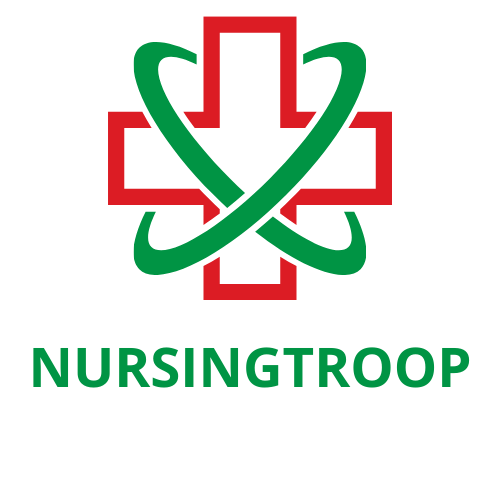As a nursing student or nurse about to take their NCLEX exam, the thought of that dreaded last question is always in your mind. Even though you may feel prepared after studying for months, wondering what would happen if the final question was easy can cause some nerves.
Well, have no fear! In this blog post, we will explore what it could mean if you receive an easy last question on your NCLEX and provide helpful tips should that situation arise. So read on to learn more about how your score is determined and advice for successfully navigating any scenario.
Table of Contents
Why Last Questions on NCLEX was Easy?
When taking the NCLEX, the last question you encounter can have powerful implications for your final results. If the previous question was easy, it could be a sign that you got a topic you were very familiar with, or it could indicate that the question wasn’t as challenging as others you’d faced earlier in the exam.
While seeing an easy last question as a positive sign that you have passed can be tempting, it’s important to remember that this is just one component of a complex and thorough examination.
You will surely know whether you passed when the official results are in. Whether you found the last question easy or not, the important thing is to trust in your preparation and your abilities and to remain patient while you wait for your results.
Does the Last Questions on the NCLEX matter?
Many nursing students may wonder if the last question on the NCLEX, which is a computer adaptive test, has any significance in the overall outcome of the exam. Although this question may seem like the deciding factor, it is not the case.
The NCLEX uses a complex algorithm that considers the difficulty level of all the questions answered, not just the last one. This means the previous question may be easier or more difficult depending on how well a test-taker performed in prior questions.
Ultimately, the NCLEX is about demonstrating a thorough understanding of nursing concepts and proving the ability to think critically in providing patient-centered care. Therefore, nursing students should focus on studying and mastering the material rather than worrying about the significance of the last question on the exam.
Tips for Dealing With an Easy Last Question on the NCLEX:
If you have encountered an easy last question on your NCLEX, here are a few tips to help you tackle it in the best way possible:
1. Take Your Time: It can be tempting to rush through the last question in anticipation of the results, but it is essential to take the time to answer each question carefully. Even if you think you know the answer, review your work and double-check that all your answers are correct.
2. Don’t Panic: It’s perfectly normal (and expected) for test-takers to feel nervous before or during exams. If you encounter an easy last question on your NCLEX, try not to panic, as this could affect your performance. Instead, stay calm and remember that a single question cannot determine the outcome of your entire exam score.
3. Wait Patiently: Once you have completed the last question on your NCLEX, nothing else means you may think NCLEX was easy or hard. All the best to you! You can do but wait for your results.
You can do but wait for the results. Remember to trust your preparation and remain patient while waiting for the official score.
8 Steps of NCLEX Question Analysis
- Read the whole question
- Identify the main topic
- Identify/predict the answer
- Find keywords in the question
- Re-read the whole question and check the assumptions
- Eliminate wrong options
- Consider all remaining options carefully
- Select the best option as your answer.
How does the NCLEX score you?
Scoring for the NCLEX is different from typical exams. Instead of a fixed number of questions, your score is based on the number of difficult items you answered correctly. So, if you get many correct answers when given more challenging questions, your score will be higher.
Interestingly, the passing grade is zero, with a correct answer being one point and an incorrect one being -1. Therefore, a score of zero means that 50% of your answers were accurate. However, when the results arrive, you will only be given the PASS or FAIL indication rather than specific scores. Overall, the scoring of NCLEX is unique but aimed to test a candidate’s proficiency in nursing.
NCLEX Changes: New Scoring System
The Next Generation NCLEX, or NGN, has significantly changed the nursing licensure exam. One of the most notable updates is using a new scoring system. Previously, exam items were scored as correct or incorrect [dichotomous scoring].
However, the NGN has adopted a [polytomous scoring] method, allowing partial credit on some items. This new system allows for a more precise measurement of a student’s abilities and considers the complexity of the exam’s new item types. As students prepare for the Next Generation NCLEX, it’s crucial to understand how this new scoring system will work and how it may impact their performance on the exam.
Next Gen NCLEX Scoring: Partial Credit
The Partial credit on the Next Gen NCLEX can be assigned in three ways:
- +/- Scoring: Test-takers receive one point for correct responses and lose a point for incorrect answers. If the total score is negative, the final score will be “0.”
- 0/1 Scoring: Test-takers receive one point for correct responses but don’t lose points for incorrect answers.
- “All or Nothing” Scoring: Test-takers receive “all or nothing” credit for linked units within an item, meaning it’s either all correct or all incorrect.
Final Thoughts
Hopefully, this blog post has provided insight into what an easy last question on your NCLEX could mean and how you can best tackle it. Remember, even if your final question was not as challenging as other questions, it is still one small component of a larger examination. Don’t let it affect your confidence or preparation going forward.
Mrs. Marie Brown has been a registered nurse for over 25 years. She began her nursing career at a Level I Trauma Center in downtown Chicago, Illinois. There she worked in the Emergency Department and on the Surgical Intensive Care Unit. After several years, she moved to the Midwest and continued her nursing career in a critical care setting. For the last 10 years of her nursing career, Mrs. Brown worked as a flight nurse with an air ambulance service. During this time, she cared for patients throughout the United States.

